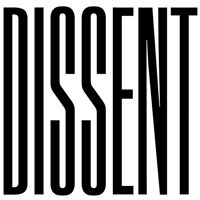Trump is systematically ending the viability of a future Palestinian state
The Trump administration’s announcement on Monday about Israeli settlements was just the latest draconian measure targeting Palestinians
Tue 19 Nov 2019
S
ecretary of State Mike Pompeo’s announcement on Monday – that the US will no longer consider Israeli settlements in the occupied Palestinian territories a violation of international law – is, in many ways, a near-perfect encapsulation of the Trump administration’s approach to Israel-Palestine.
Couched in grotesque doublespeak, it claims to advance “the cause of peace” while signaling US approval of Israel’s brutal, perpetual military rule over the roughly 3 million Palestinians living in the West Bank. It is part and parcel of the Trump administration’s ongoing, concerted efforts to undermine international legal frameworks for addressing human rights violations (and not just in Israel-Palestine). And it is yet more proof, not that more was needed, that the Trump administration is actively pursuing a post-two-state-solution agenda.
Indeed, for an administration marked by erratic decision-making and sudden reversals, Trump’s has been thoroughly systematic when it comes to ending the viability of a future Palestinian state. This, of course, is no surprise. In a clear harbinger of what was to come, rightwing pro-Israel operatives close to Donald Trump – among them David Friedman, now US ambassador to Israel, and Jason Greenblatt, former special envoy to the Middle East – successfully removed support for a two-state solution from the 2016 Republican party’s platform.
Since its inauguration, the Trump administration has taken draconian measures against key Palestinian institutions, from shuttering the PLO office in Washington to slashing funding to UNRWA, the UN body that distributes vital aid to over 5 million Palestinian refugees across the Arab world. In 2018, the Trump administration moved the US embassy in Israel from Tel Aviv to Jerusalem. (East Jerusalem, which Israel unilaterally annexed in 1967 and which the international community considers unlawfully occupied, was once intended as the capital of a future Palestinian state.) Last March, President Trump formally recognized Israeli sovereignty over the Golan Heights – occupied by Israel in 1967 and, in violation of international law, unilaterally annexed in 1981.
These steps are meant to prepare the ground for Israel’s eventual annexation of parts of the West Bank, something that the Israeli prime minister, Benjamin Netanyahu – currently fighting for his political survival and facing possible indictment in multiple criminal cases – has pledged to undertake if re-elected. In step with the Israeli right’s annexationist policies, the Trump peace plan – “the Deal of the Century” – is all but guaranteed to be a gift to the territorial-maximalist right. To say that it is unlikely to include a Palestinian state would be an understatement.
But as is typical of Trump administration decisions, this is not simply a matter of ideology. It is also a matter of personal expediency – for Trump and Netanyahu alike – as well as a blatant instance of US intervention in a foreign country’s political system. Both Trump and Netanyahu are bogged down by investigations into their almost certainly criminal conduct. Pompeo’s announcement is a bone thrown to Trump’s anxious base of Christian Zionists and the Jewish religious right, and it is another gift – much like Trump’s Golan Heights recognition – to Netanyahu who, floundering in electoral limbo, can now claim a foreign policy victory just one day before Israel’s attorney general is expected to announce his indictment.
It would, however, be a mistake to view Pompeo’s announcement as a complete break with US policy precedent. Again, as with so much of what the Trump administration has done over the past several years, this, too, marks less a rupture with the status quo than its unmasking. While the US government has long considered Israeli construction of settlements in the occupied Palestinian territories a violation of international law on paper, it has done little to hold Israel’s government meaningfully accountable in practice.
In the past decade, perhaps the closest the US government came was the Obama administration’s abstention from a 2016 United Nations security council resolution that condemned Israeli settlements as a “flagrant violation” of international law. Just five years earlier, the Obama administration actually vetoed a similar resolution condemning Israeli settlement building – with a justification quite similar to the one offered by Pompeo in Monday’s announcement. Condemning Israel for violating international law, the then US ambassador to the UN, Susan Rice, claimed, was unlikely to “move the parties closer to negotiations and an agreement”.
Not a novelty of the Trump era, this kind of refusal to enforce the overwhelming international legal consensus on Israeli settlements has been a hallmark of US policy on Israel-Palestine. Pompeo’s announcement is, without doubt, a step beyond what previous administrations were willing to consider. But the difference between this decision and previous US decisions to disregard international law is a difference of degree, not kind.
Which should be a warning to those who would like to see a just and equitable final status agreement between Israel and the Palestinians. Even when Trump is gone, the forces that have doggedly worked to prevent the US from holding Israel accountable for its actions will remain. The views expressed in Pompeo’s announcement are roughly shared, for instance, by the powerful pro-Israel lobby Aipac – which, though perhaps hard for some to believe, is facing criticism from the messianic-Zionist right for not endorsing outright Jewish settlement in the occupied West Bank. (In fact, the positions of some of the Trump officials currently driving U.S policy on Israel-Palestine are also to the right of Aipac’s stated positions: Ambassador Friedman, a prominent pro-settlement activist, is an adamant opponent of a two-state solution, which Aipac nominally supports, at least for now.)
Nor will the prospect of de jure annexation disappear, even if Netanyahu falls victim to a palace coup within his Likud party, resigns over indictments or loses a potential third round of elections. De facto annexation will proceed apace, regardless of who ends up the next prime minister. But Benny Gantz, Netanyahu’s main political rival, also thanked Pompeo for the “important announcement”, which he called “a demonstration of the US’s strong support for Israel and commitment to its security”. Members of Gantz’s Blue and White party, which could possibly lead a future Israeli government, support annexing parts of the West Bank.
Thanks not only to the Trump administration, but also to the consistent inaction on the part of previous US administrations and the empty, ineffectual statements of the European Union, Israeli leaders can be confident that – whatever steps they decide to take towards making an independent Palestine impossible – they will not face serious international consequences. Pompeo’s announcement is simply confirmation of what has long been clear to those paying attention.
The possibility of de jure annexation, alongside creeping de facto annexation, will remain part of the political calculus of Israel-Palestine for the foreseeable future: the two-state solution, less so.
- Joshua Leifer is an associate editor at Dissent. Previously, he worked at +972 Magazine and was based in Jerusalem


Geen opmerkingen:
Een reactie posten
Opmerking: Alleen leden van deze blog kunnen een reactie posten.